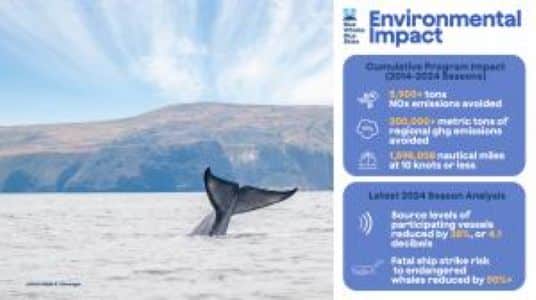10 Years of “Whale-Safer” Transits off California
Ten Years of Whale-Safe Shipping in California

The shipping industry in California is celebrating a decade of “whale-safe” transit practices that have significantly benefited endangered whale populations. This initiative, which encourages major shipping companies to adopt slower speeds in critical marine habitats, has led to improved air quality and reduced underwater noise pollution. The program’s success highlights the positive impact of industry participation in conservation efforts.
Impact on Endangered Whales and Marine Environment
Over the past ten years, the “whale-safe” transit program has made substantial strides in protecting endangered whale species, particularly the blue whale. By encouraging vessels to reduce their speeds in designated areas, the initiative aims to minimize the risk of ship strikes, which are a leading cause of mortality for these majestic creatures. The collaboration between environmental organizations and shipping companies has fostered a culture of responsibility and awareness within the industry.
In addition to safeguarding marine life, the program has also contributed to enhanced air quality along the California coast. Slower vessel speeds result in lower emissions, which is crucial for both human health and the environment. Furthermore, the reduction in underwater noise pollution has created a more conducive habitat for marine animals, allowing them to communicate and navigate more effectively.
The ongoing commitment to “whale-safe” practices reflects a growing recognition of the need to balance economic activities with environmental stewardship. As the shipping industry continues to evolve, the lessons learned from this initiative may serve as a model for similar efforts worldwide, demonstrating that sustainable practices can coexist with commercial interests.
